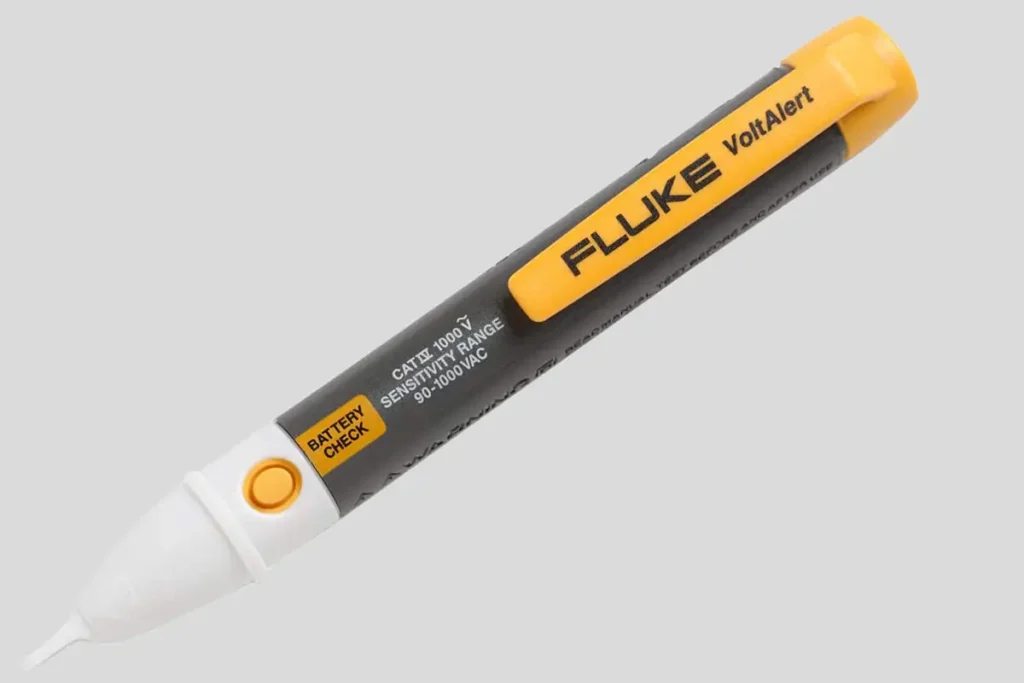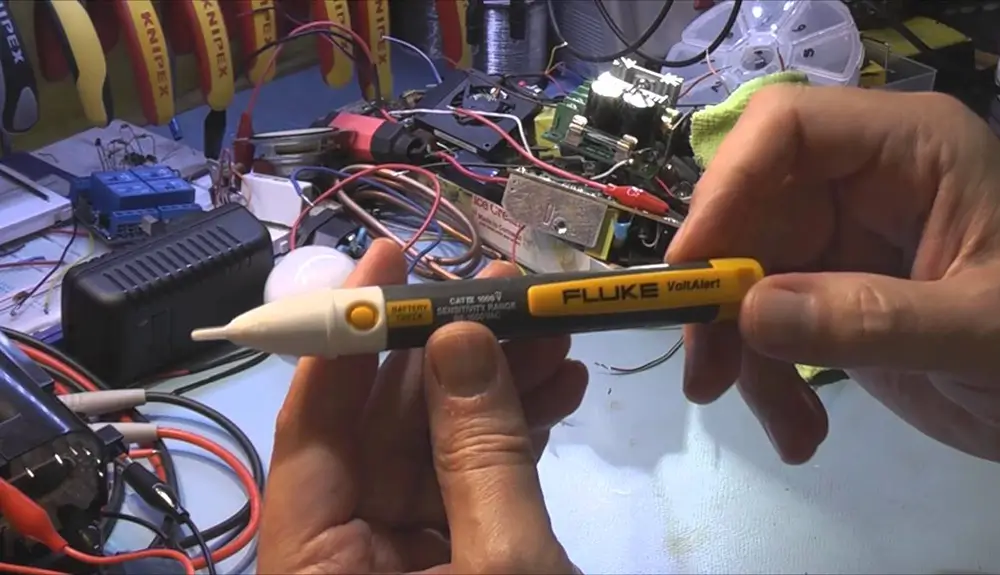If you’re working with electricity, even just swapping out an outlet, you know safety is king. And when it comes to checking whether that wire is live or dead, a reliable voltage tester is your best friend. Enter the Fluke 2AC Alert Voltage Tester—a small, handy tool that’s as essential as your screwdriver. Let’s break down what makes this tester stand out and why it might just be the tool you didn’t know you needed until now.

Design and Build Quality
The Fluke 2AC is designed like a pen—slim, lightweight, and easy to carry around. It fits right in your pocket or tool belt, always ready for action. The bright, glowing tip isn’t just for show—it’s the heartbeat of the device, lighting up when it senses voltage. And let’s not forget, this little guy is built tough. It’s no surprise, considering Fluke’s reputation for making tools that can take a beating and still work like a charm.
Now, you might be wondering, how durable can a pocket-sized voltage tester be? Well, the Fluke 2AC isn’t just durable; it’s a workhorse. This isn’t something you’ll toss out after a few uses. Whether you’re working in a dusty garage or a damp basement, this tester is up to the task. The rugged build is just what you need when things get a bit rough.
Key Features of Fluke Voltage Tester
What’s the first thing you’ll notice about the Fluke 2AC? It’s always on. That’s right, there’s no power button to fumble with. This might seem like a minor detail, but trust me, when you’re up on a ladder trying to check a circuit, the last thing you want is to realize you forgot to turn your tester on. The always-on feature saves you from those facepalm moments.
Speaking of voltage detection, this tester covers a range from 90 to 1000 volts AC. It’s versatile enough to handle just about any job, whether you’re at home fixing a light switch or at work checking industrial equipment. The tip glows red when it’s near a live wire, and if you’re in a noisy environment, you can also rely on the beep to confirm the presence of voltage.
But what really sets the Fluke 2AC apart is the battery check function. A tester that doesn’t work when you need it most isn’t just frustrating—it’s dangerous. With this feature, you’ll know right away if the battery is running low, so you can swap it out before it becomes a problem. It’s like having a backup plan for your backup plan.
Performance and Accuracy

Accuracy is where the Fluke 2AC really shines. Non-contact voltage testers can sometimes be hit or miss, especially with cheaper models. But with the Fluke 2AC, you’re getting a tool that delivers consistent, reliable results. It detects voltage through insulation, so you don’t need to expose any wires—a huge plus for both safety and convenience.
Let’s compare it to other models out there. Some testers are known to give false positives or negatives, which can be more than just annoying—it can lead to dangerous situations. The Fluke 2AC’s continuous self-test feature helps to eliminate this issue. It’s like having a tool that checks itself before you use it, giving you that extra layer of security.
In real-world use, customers rave about its reliability. Whether they’re using it every day on the job or just for the occasional home repair, the feedback is overwhelmingly positive. The tester doesn’t just work—it works well, every single time.
Pros
- Reliable Detection: You can count on it to accurately detect voltage every time.
- Ease of Use: Always-on feature means it’s ready to go when you are.
- Safety: CAT IV 1000 V rating makes it suitable for a variety of environments.
- Compact Design: Fits easily into your pocket, so it’s always within reach.
Cons
- Price: It’s a bit on the pricier side compared to other voltage testers, but you get what you pay for.
- Limited to AC Voltage: If you need to test low-voltage systems, this isn’t the tool for the job.
Frequently Asked Questions (FAQs)
Can I use the Fluke 2AC outdoors?
- Yes, but keep in mind that extreme weather conditions could affect its performance. It’s always a good idea to check the battery and ensure the tester is clean before use.
Is this tester suitable for low-voltage systems?
- No, the Fluke 2AC is designed for detecting AC voltage from 90 to 1000 volts. If you’re working with lower voltages, you’ll need a different tester.
How does the Fluke 2AC compare to the Fluke 1AC?
- The Fluke 2AC is always on, which makes it more convenient for quick checks. The Fluke 1AC, on the other hand, has an on/off switch, which can help conserve battery life.
Conclusion
The Fluke 2AC Alert Voltage Tester is more than just a tool—it’s a safety device that could make all the difference in your next project. Whether you’re a professional electrician or a DIY enthusiast, this tester offers reliability, ease of use, and peace of mind. Sure, it’s a bit pricier than some other models, but when it comes to safety, it’s worth every penny.
So, if you’re in the market for a new voltage tester, the Fluke 2AC should be at the top of your list. It’s a small investment that pays off big time by keeping you safe while you work. And in the end, isn’t that what really matters?




